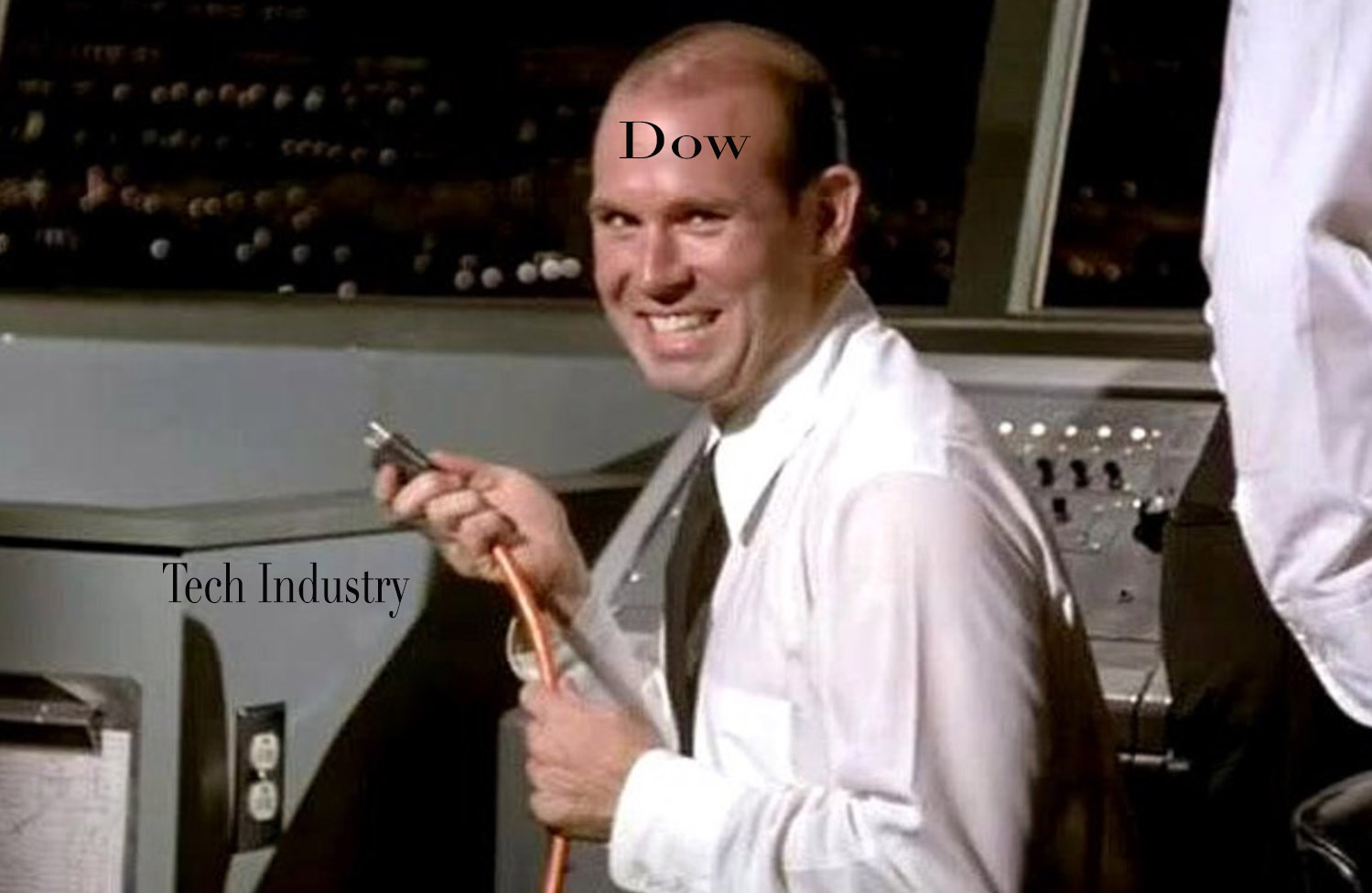The market is holding on for dear life as it endures its longest slump in the last two years. In a cautious effort to shift the tides, US stocks traded slightly higher on Thursday morning. Investors, far and wide, are trying to pull the Dow out of from the wreckage after the index plunged 832 points on Wednesday. As of Thursday, the Dow crept into calmer waters, with the Nasdaq rising nearly 1%, rebounding from its workday since the introduction of Brexit in June 2016, CNN Business reports.
- The Dow (DJI) is currently down 0.74% (-$200.81) , trading at $25,40943 per share, with
- The S&P 500 Index (SPX) dropped 0.58% ($-18.77), trading at $2,767.82 per share following suit.
The Nasdaq in specific has been riding the struggle bus the last few days, losing 7% to date. Over the course of this week, the Federal Reserve has raised interest rates to protect the economy from inflation, resulting in a mass selloff of bonds, leading to increases in yields on government bonds, specifically the 10-year Treasury note. The Nasdaq index contains many tech stocks, and many tech companies are facing the consequences of the index’s plunge.
Companies like Netflix (NFLX), Amazon (AMZN), Facebook (FB), and others have dropped significantly this week. The New York Stock Exchange’s FANG+ index includes all of these companies as well as Tesla (TSLA), Nvidia (NVDA), and China’s Alibaba (BABA). This last week, the FANG+ index dropped 8%, causing many of its tech holdings to plummet.
- Netflix (NFLX) dropped more than 8%, trading at $325.55 per share
- Amazon (AMZN) sank nearly 10% in the past few days, trading at $1,730.88 per share
- Facebook (FB) and Apple (AAPL) each dropped 4% this week, trading at $153.59 and $217.34, respectively
While all signs are showing that each of these companies will report relatively strong quarterly earnings, they are not impervious to the recent downtick in long-term bond yields and signs from the Reserve that “it plans to keep hiking short-term rates throughout 2019,” according to CNN. This could effectively stifle the economy and harm the growth of these tech giants.
Chris Zaccarelli, chief investment officer for Independent Advisor Alliance, commented on the rising rates’ effect on the tech industry:
“The first thing to fall will be these momentum names. I think there are a lot of risks overhanging the market. We’re in a rising state environment, and it’s not just that they’re higher, but that they rose so quickly…Rising rates will disproportionately affect the tech sector.”
–Chris Zaccarelli, chief investment officer Independent Advisor Alliance.
Though the fiscal integrity of the technology sector seems compromised, Zaccarelli said that we have no reason to believe the industry’s headed “for bear market territory and that there’s no reason to panic.”
Why tech, why now?
Generally, the majority of tech companies traded on Wall Street are considered to be “growth investments.” This means that investing in these companies will not pay any dividends when the company reinvests their earnings in their own growth. Netflix (NFLX), for example, uses a large amount of its capital each quarter producing and obtaining new content, CNBC reports, as well as driving subscriber growth overseas. Like Netflix, Amazon (AMZN) reinvests a large percentage of its capital into new business ventures, like Amazon Web Services.
However, these investments can be riskier in the short run because investor capital is directly proportionate to the company’s share price.
As trade tensions between the U.S. and China constantly increase, the Chinese economy is starting to show signs of slowing. Last month, President Donald Trump issued 10% tarries on $200 billion worth of Chinese goods, with provisional agreements for those tariffs to hit almost 25% by the end of the year.
Companies like Qualcomm (QCOM) and Intel (INTC) are facing the consequences of President Trump’s China tariffs. China is one of the industry’s leading producers of semiconductor equipment, technology integral to the production of mass-market electronics. If the production of semiconductors decreases, the global tech industry will be in trouble.
Closing Words
The fact of the matter is the market will always ebb and flow, it’s the nature of the industry. If the Federal Reserve continues to increase interest rates, tech companies may need to step to the side, while other industries combat the rising bond yields.





